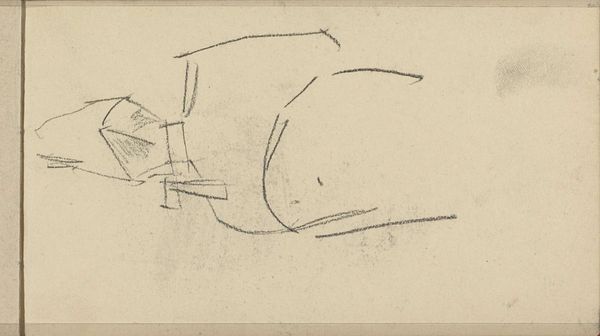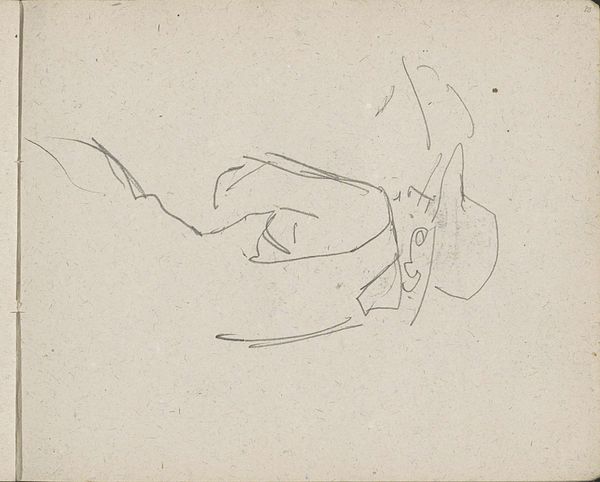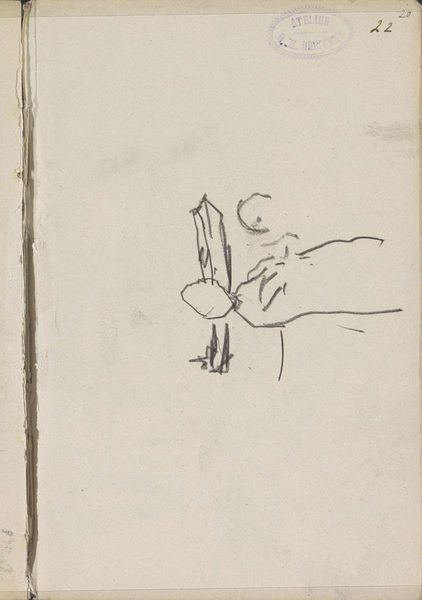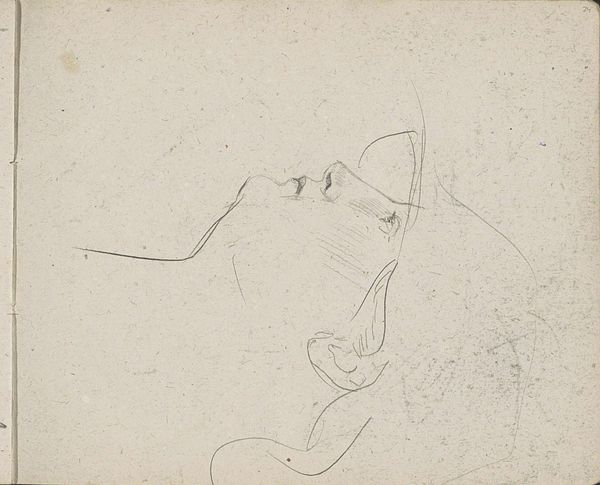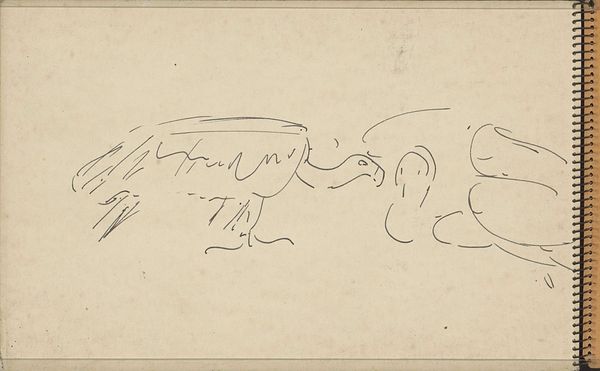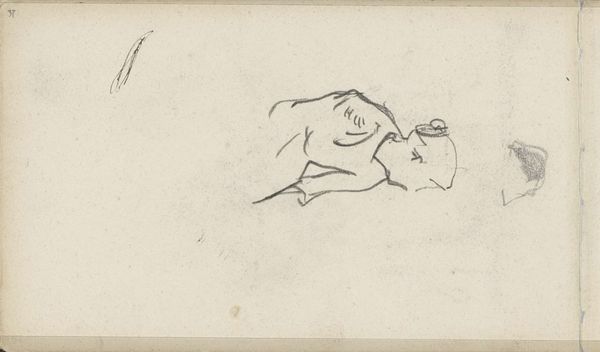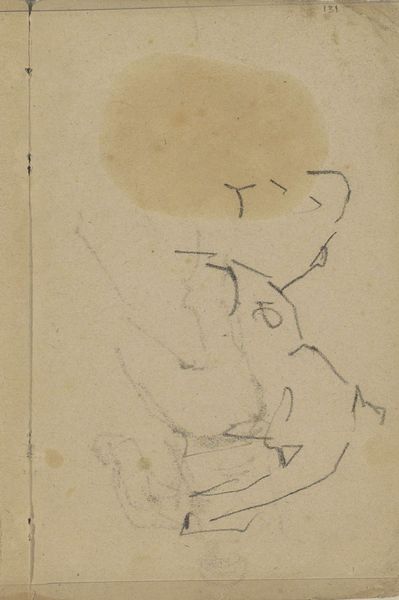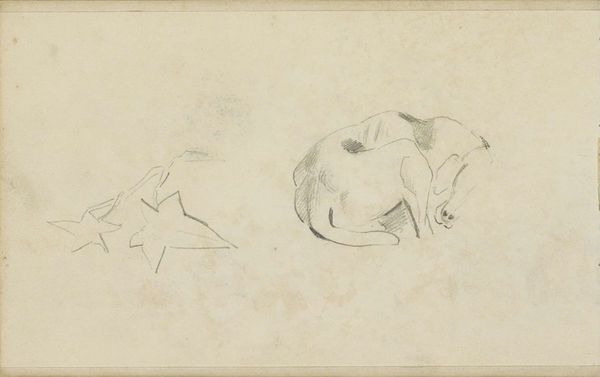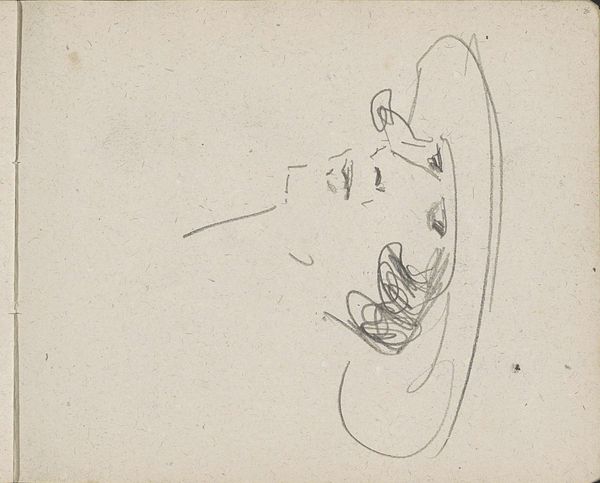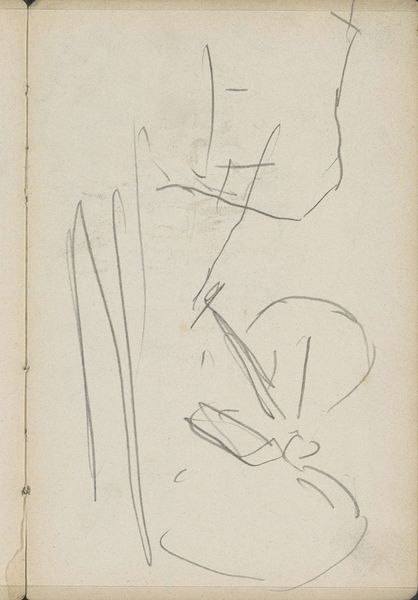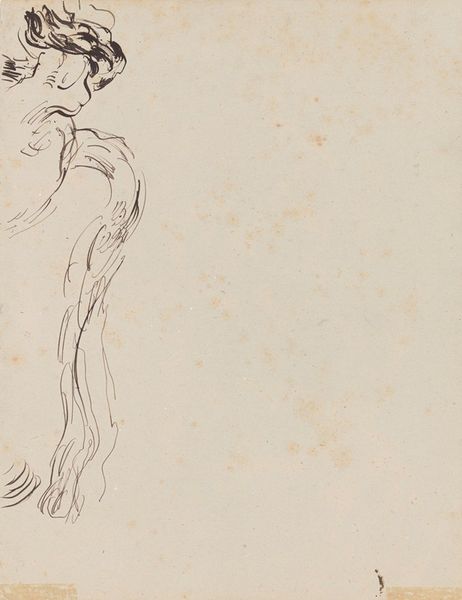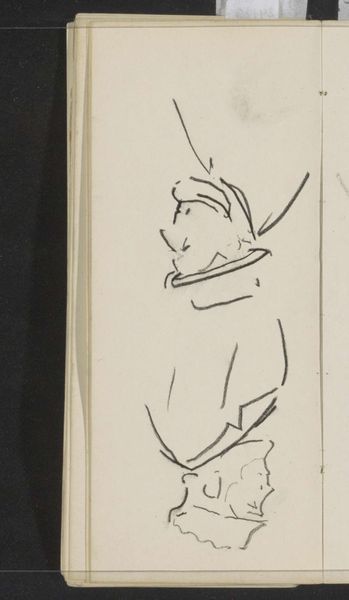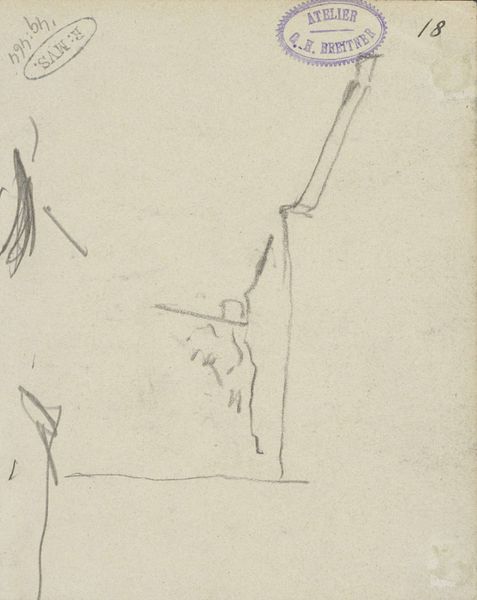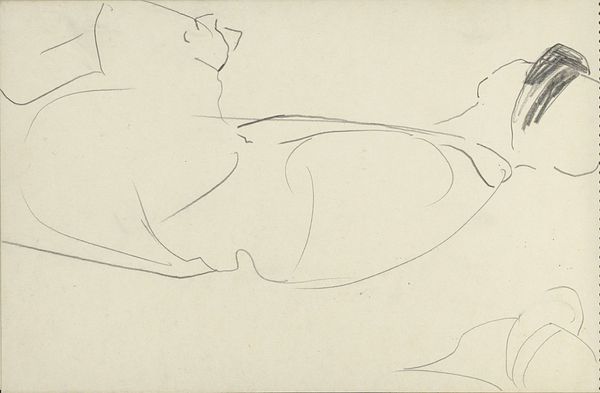
drawing, pencil, graphite
#
drawing
#
amateur sketch
#
imaginative character sketch
#
light pencil work
#
pencil sketch
#
form
#
personal sketchbook
#
idea generation sketch
#
character sketch
#
pencil
#
abstraction
#
graphite
#
sketchbook drawing
#
sketchbook art
#
initial sketch
Dimensions: height 54 mm, width 65 mm
Copyright: Rijks Museum: Open Domain
Curator: Welcome. Before us, we have "Contour van een menselijk bot met een afwijking," or "Contour of a Human Bone with a Deviation," a pencil drawing by Isaac Weissenbruch, created sometime between 1836 and 1912. It is currently held in the collection of the Rijksmuseum. Editor: My immediate reaction is a sense of unsettling asymmetry. The line work is tentative, but deliberate, outlining a form that suggests fragility. It really makes you contemplate its history. Curator: Indeed, its asymmetry evokes a lot of things, but its very form is also about power dynamics in art. Who has historically been depicted, and in what way? The distortion, if we are to call it that, in the bone challenges notions of the ideal body, historically often aligned with able-bodied, white, male perspectives. Weissenbruch offers a silent but strong voice. Editor: The interplay between positive and negative space is quite striking. Notice how the subtle variations in line weight, seemingly random, are creating this volume and drawing our attention towards particular... shall we call them problem areas. What appears to be the annotation of "a" in at least two locations points to areas the artist wanted to revisit. Curator: Annotations like "a" could represent something different. Disability studies teaches us to reframe concepts like "abnormality". The drawing perhaps critiques medical gazing, questioning whether "deviation" should exist. Is Weissenbruch trying to depict or is it really exploring the potential within the unconventional form? Editor: It also calls to question his skill. While an artist might use it to push beyond conventional mimesis, an unusual drawing in some ways does also challenge conventional standards. But for what it’s worth, Weissenbruch succeeds at keeping the piece ambiguous enough. Curator: Well, by engaging with it, you bring it to modern context as we confront the legacies of ableism. His sketches contribute to discourses of representation, visibility, and the aesthetic valuation of all forms. Editor: I am more keen about the artwork and how it showcases raw potential when sketching forms, how lines come together to make an imperfect yet memorable experience. But it certainly sounds like we are going towards a direction to make us look inward as a society. Curator: Yes, in the context of the artwork it gives another way to show a perspective, one that acknowledges and hopefully dignifies, through artistic expression, all humans.
Comments
No comments
Be the first to comment and join the conversation on the ultimate creative platform.
